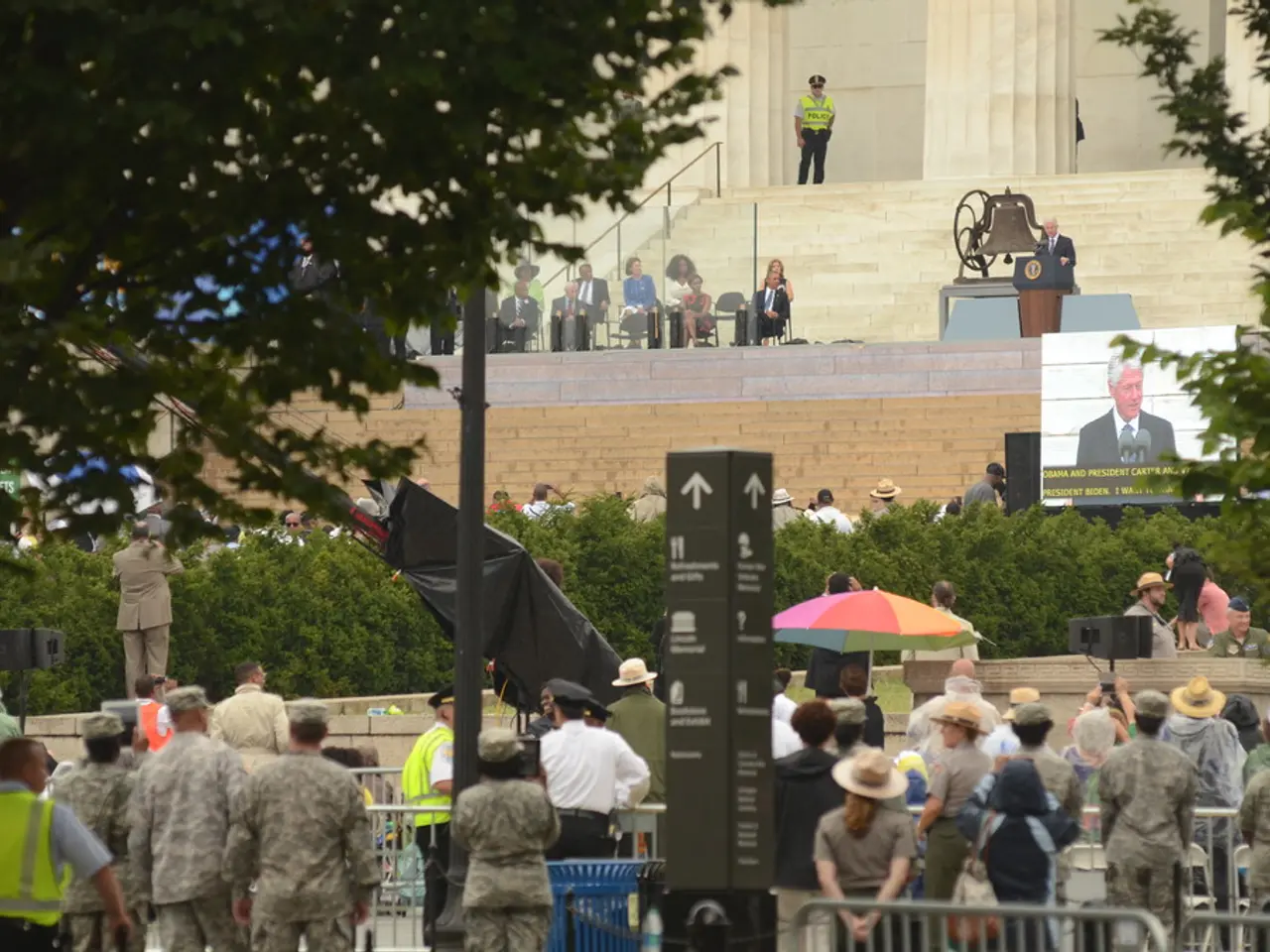Iran refuse to conduct inspections prior to the arrival of the International Atomic Energy Agency (IAEA)'s visit
Iran's cooperation with the International Atomic Energy Agency (IAEA) has been suspended since late June 2025, halting IAEA inspections and verifications of Iran’s nuclear activities [1][4][5]. This decision was made following parliamentary legislation and was a response to US and Israeli strikes on Iran’s nuclear facilities [2].
Despite this suspension, Iran has indicated a willingness to resume talks with the IAEA. A new round of discussions is expected imminently [2][3][4]. Iranian officials have emphasized that they are prepared to take steps to reassure the world about the peaceful nature of their nuclear program, but these steps are conditional on the lifting of international sanctions [3]. Iran also stresses that its relationship with the IAEA remains direct, and denies third-party mediation in these talks [3].
The European parties to the 2015 nuclear deal (E3: UK, France, Germany) have strongly opposed Iran’s cessation of IAEA cooperation, viewing it as a violation of its obligations under the Nuclear Non-Proliferation Treaty (NPT) and the Comprehensive Safeguards Agreement (CSA) [1]. The E3 have threatened to activate the UN Security Council snapback mechanism by the end of August 2025, which would restore UN sanctions on Iran unless Iran resumes compliance and meaningful cooperation with the IAEA [1][5].
Iran has blamed the IAEA for failing to condemn the US and Israeli strikes [6]. Tehran is also concerned about the potential negative consequences of stopping cooperation with the IAEA, as it may be perceived as a serious attempt to withdraw from the NPT [7]. In response, Iran has warned it might withdraw from the global nuclear non-proliferation treaty if sanctions are reimposed [7].
As of Sunday, nothing has been finalized regarding the resumption of talks between Iran and the US [8]. The IAEA has accused Iran of hiding enriched uranium, a claim that Tehran denies [9]. The European countries (E3) have threatened to initiate a "snapback mechanism" that would reinstate UN sanctions on Iran [10]. A bill passed in Iran's parliament restricts Tehran’s cooperation with the IAEA [11].
The situation remains tense and in flux with a diplomatic window open but constrained by political and security challenges. The future of Iran's nuclear program and its relationship with the international community remains uncertain.
References:
- Reuters
- Al Jazeera
- BBC News
- CNN
- The Guardian
- AP News
- Deutsche Welle
- Reuters
- IAEA
- BBC News
- Reuters
Read also:
- Court petitions to reverse established decision on same-sex marriage legalization
- Trump's enforcement actions in Washington D.C.: Insights from the political arena
- Chinese Ambassador issues stern message to India regarding Trump's tariffs in midst of escalating trade feuds
- Aircraft collides with another one on the runway during landing at Montana airport, igniting flames








